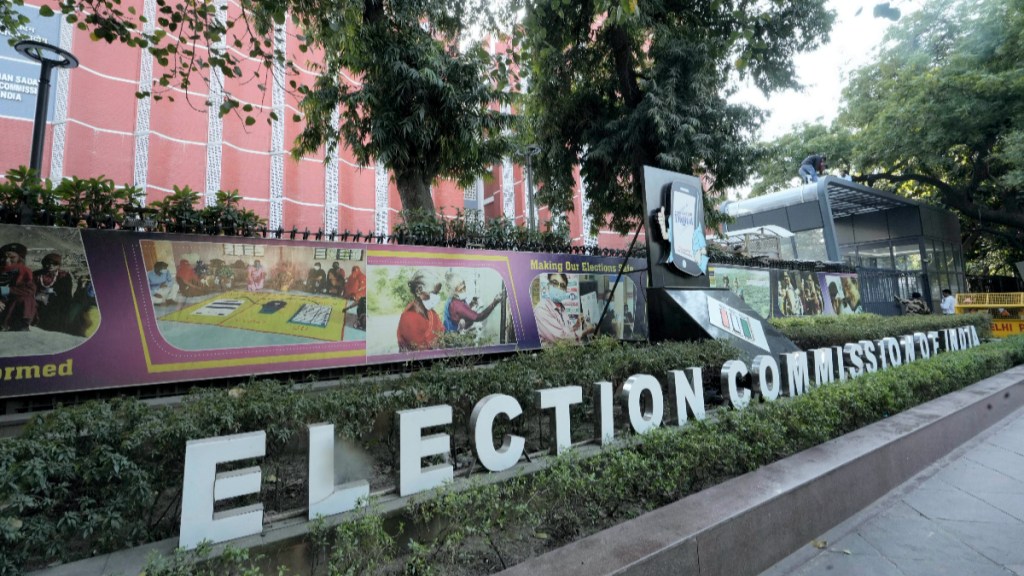With India going to polls this month, UBS Securities outlined that economists will concentrate on how the various political parties are outlining measures for fiscal prudence and capex recovery. It said that the BJP election manifesto focused on policy continuity could bode well for business sentiment and private corporate capex recovery. Congress on the other hand has a populist skew in its election manifesto.
Based on analysis of 2024 election manifestos of the national as well as regional parties, Tanvee Gupta Jain, Economist at UBS India, said, “ In the election manifesto, BJP mentioned they have demonstrated low inflation, high growth and fiscal prudence in the past decade and will continue to be on this path and guarantee that India will be the third largest economy over the next five years. We believe the focus on policy continuity could bode well for business sentiment and the much anticipated private corporate capex recovery.”
BJP playing on ‘policy continuity’
The BJP manifesto said that they have set up a high powered committee to make ‘One Nation, One Election’ a reality and reiterated its stand to draw a Uniform Civil Code (UCC). The election manifesto talked about expanding existing welfare programmes, including extending a free health insurance programme to senior citizens (>70 years), piped cooking gas connections, free food rations for the next 5 years, and free electricity to poor households, among others. It also mentioned a broader government push towards supply side reforms including higher infrastructure spending (both digital and physical), a manufacturing push and creating employment opportunities.
Congress betting on a populist manifesto
Meanwhile, Congress, it said, has a populist skew in its election manifesto. As per the analysis by UBS India, the implementation of populist schemes announced by the Congress in the manifesto could entail taking the fiscal deficit higher to 7- 8.5 per cent of GDP as against 5.1 per cent of GDP projected by the BJP government in their FY25 interim budget. “Fiscal expansion will hurt the macro stability narrative and could delay the private corporate capex recovery,” it added.
The UBS India report said that key promises made by the Congress in their election manifesto included,
-a) Rs 100,000 (US$1200) per year to one woman in each of the poorest families under the Mahalaxmi Scheme as an unconditional cash transfer. However, the report stated that the number of beneficiaries identified has not been disclosed, with no discussion around the financial implications.
b) Legal guarantee to Minimum Support Prices (MSPs), as recommended by the Swaminathan Commission is also a worry point according to UBS India. “We think this could increase the existing food subsidy bill by 25 per cent YoY if implemented,” UBS India said.
c) Job creation and proposal to enact ‘Right to Apprenticeship Act’ for youth below 25 years with Rs 100,000 (US$1200) annual stipend.
d) Making India a manufacturing hub by raising the share of manufacturing from 14 per cent to 20 per cent of GDP by 2030. However, per the report, no indication of the likely roadmap and relevant sectors has been discussed in the manifesto.
e) Congress promises to replace the GST laws enacted by the BJP/NDA government with GST 2.0. Notably, the report added that the Congress manifesto also rejects the ‘One Nation, One Election’ idea.
The regional parties, including AIADMK, DMK and CPI, on the other hand, talked about cash handouts to women and farmers, increasing minimum wages, lowering fuel prices, cash transfers to women and called for farm-loan waivers.
Even as Congress is moving ahead with its ‘populist’ election manifesto, the question is where is the money and what will be the overall financial implications of these promises. “Our rough analysis suggests that implementing these poll promises would entail an additional fiscal cost of 2.0- 3.3 per cent of GDP, given no clear plan to cut back existing programmes. In our view, the arithmetic does not add up unless there is a significant economic recovery or higher taxes,” said Tanvee Gupta Jain. However, she added, Congress does talk about stable personal income tax rates throughout the term, limiting union cess and surcharges to 5 per cent of gross tax revenue.
While political parties are not legally obligated to fulfill their manifesto promises, the policy choices and reform narrative matter for medium-term growth and macro stability.
Will Modi win?
Even as the UBS India report maintained that it does not predict election outcome, based on the opinion polls, it said that Prime Minister Narendra Modi remains the most popular leader in India. “The recent performance in assembly elections suggests that: a) the ‘Modi factor’; b) the perception of the work done; and c) implementation of welfare programmes has worked in favour of the BJP. The government has refrained from turning populist and remains on the fiscal consolidation path in the run up to the 2024 election. We believe political stability would likely lead to policy continuity, which could bode well for market sentiment,” concluded Tanvee Gupta Jain.


